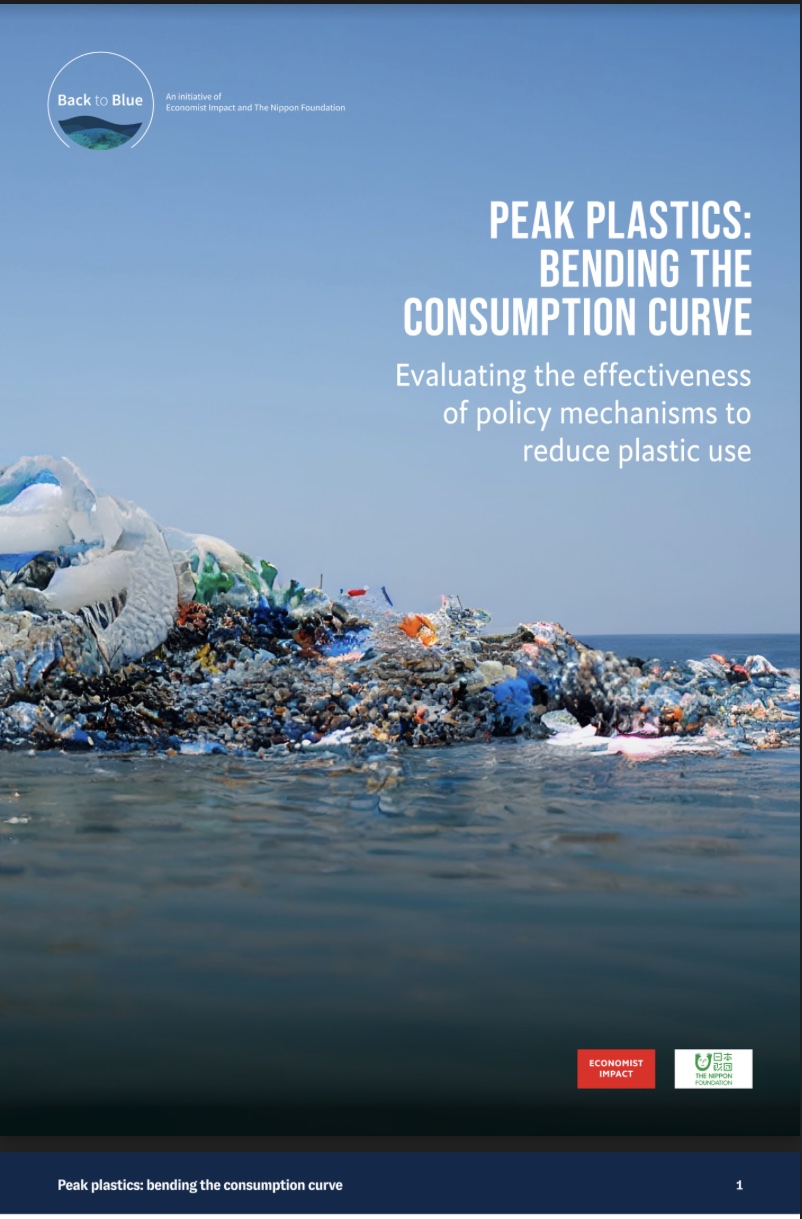Another study says efforts to curb plastic waste will not make its goal
Author: Karen Laird
A new study from Back to Blue, an initiative of Economist Impact and The Nippon Foundation, says current United Nations efforts to halt the growth in plastic consumption and to "bend the curve" on plastics use will not achieve its goal by 2050. Peak Plastics: Bending the Consumption Curve, confirms an "urgent, global effort is needed to stop the flood of plastic pollution at its source," as David Azoulay, of the Center for International Environmental Law, pointed out. The entire lifecycle of plastics … must be addressed by the future, legally binding UN treaty to end plastic pollution, he said. Much ground remains to be covered before such a treaty has been conceived, let alone implemented. In March 2022, representatives from 175 countries endorsed a resolution on plastic pollution at the United Nations Environment Assembly, agreeing to develop a legally binding global instrument to end plastic pollution: the UN Treaty on Plastic Pollution. The initial negotiating session was held in Uruguay at the end of November, and another four will follow, with the treaty expected to be in place by the end of 2024. The negotiators are considering a range of possible measures to include in the treaty, aimed at what this study refers to as "reaching peak plastic consumption," the point and volume at which global plastic consumption stops growing and begins to drop. "The urgency to reach peak plastic waste — and also peak production of disposable plastics — is crucial for preserving our planet and safeguarding our well-being,” said Perinaz Bhada Tata of the World Bank.

